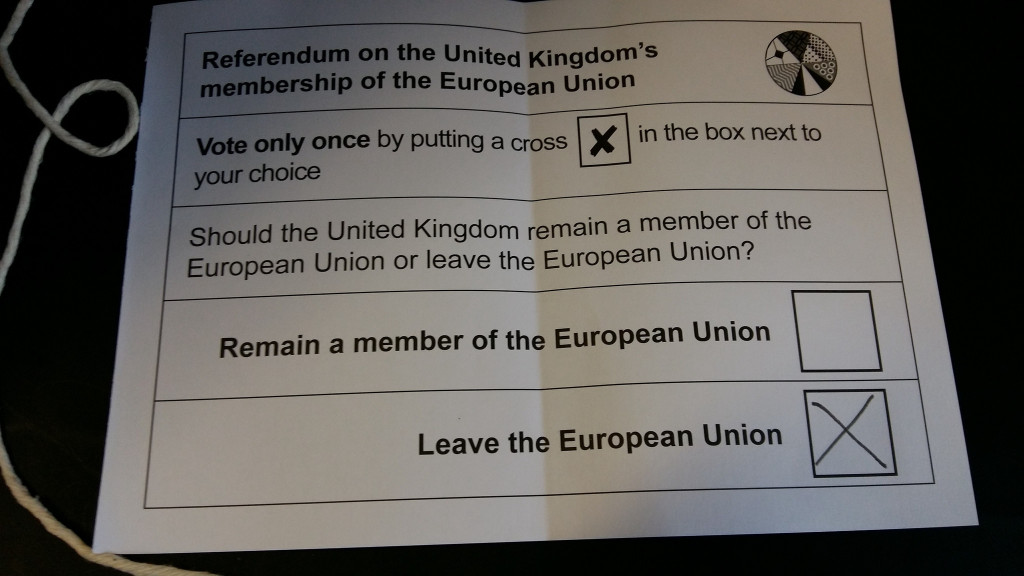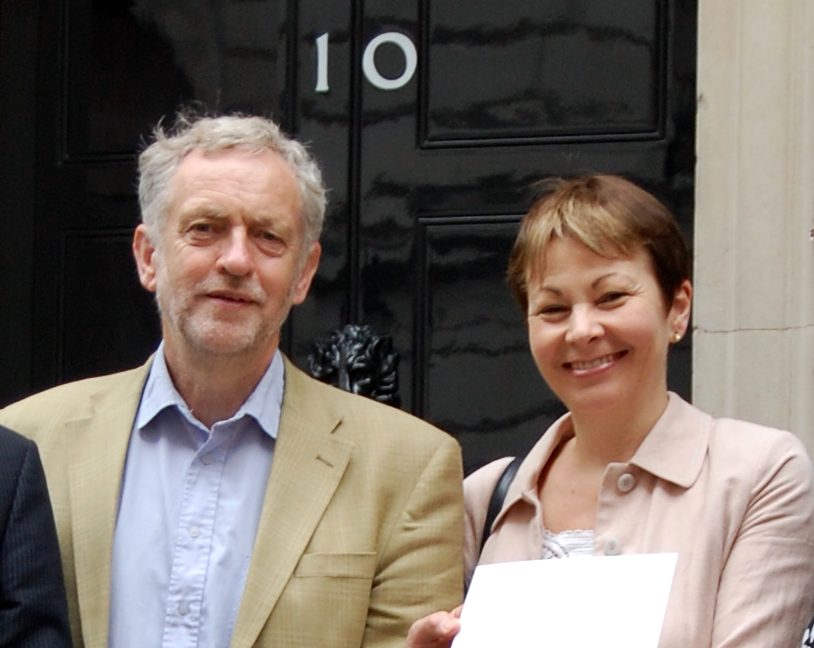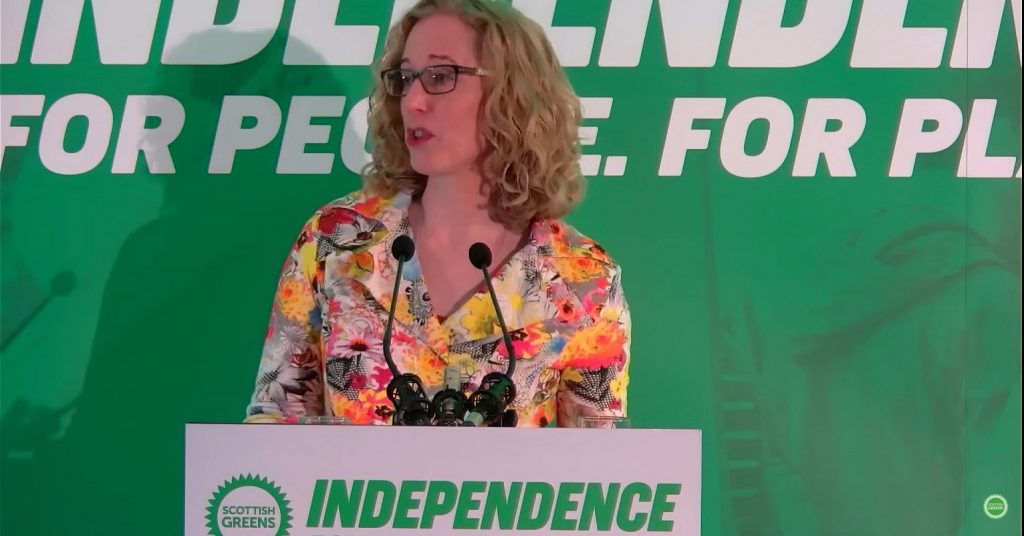Progressive Alliance? We need a plan
If we have learnt anything from Brexit, it’s that we need to be prepared.
Leaders of UK Green Parties have called for progressive parties to work together to beat the Tories at the next election to then call for a second general election under fairer proportional representation. That means Greens will have to work with Labour, Lib Dems, and Plaid Cymru to secure a majority in parliament, taking control of marginal seats.
This sounds well intentioned, but with a snap general election to potentially occur as early as November, we need to have a plan of action in place for every circumstance. To many, the call for working with Labour and Lib Dems, antagonists of Greens for many years, is not an appealing prospect. Especially considering that there is no democratic mandate set forward by members, there has been some discontent among the Greens as to whether a progressive alliance will compromise our principles and whether the leaders were correct in announcing these plans before they were universally agreed.

Nevertheless, if this is going to happen, we need to get organised now. We need to be thinking about the best way this can work, and what happens if it doesn’t. We need to consider the opinions of local Green Parties and ensure that this is not top-down decision making. And most of all, we need to question whether the likes of the Liberal Democrats and the Labour Party will work with the Greens.
Firstly, we need to consider the practicalities of a progressive alliance. What will it look like and will people vote for it? One approach could be the agreement for parties to stand down candidates in certain areas. For example, Greens may consider not fielding a candidate in Brighton Kemptown, which was a slim Tory-Labour marginal in the 2015 elections. But it might not all be sacrifices for the Greens. In the Isle of Wight, if Lib Dems and Labour were to stand down their parliamentary candidates, Greens would be neck and neck to gain a Conservative seat.
This method may cause frustration among local parties though – whichever the affiliation. Few parties will welcome an opportunity to stand down in lieu of a victory elsewhere in the country. So as a second option, rather than necessarily standing down candidates, the parties could field a candidate under a unified collective party, such as the Labour-Green-Lib Dem Coalition, or even as simple as The Progressive Alliance. This would work similarly to the Labour and Co-Operative Party candidates, but on a much more temporary basis. Parties would work together to choose the candidate, bearing in mind the electorate of the area, and synergistically work together to get out the vote.
There is the problem of who decides which constituencies will be subject to this strategy. There will have to be a centralised, elected committee ready to make these decisions, but they will also have to respect the autonomy of local Parties, whether they are Labour, Lib Dems, or Plaid Cymru. Consultation and organisation will be the key to create a functioning and effective pact. Every group must enter this plan open-minded and ready to compromise, and that includes ensuring the leadership does not dictate these plans hierarchically.

A successful electoral pact will result in a temporary coalition, but we have to be prepared for defeat too. The EU referendum showed our complacency over the result. We panicked, and we put all our resources in campaigning with little thought over what we would actually do if more voters wanted to leave than remain. What would happen if the same occurred from a general election where the anti-Tory parties agreed a pact? It is a dark thought, but the prospect of a UKIP-Tory coalition would bring the UK into a new age of senseless supercharged austerity, and we need to be prepared.
However, the electorate appreciates balance and looks kindly on seeing politicians work together. In which case, the potential risks of a progressive alliance pale in comparison to the obvious benefits. Passing proportional representation and securing an elected upper house will bring us up to date with global democracy, which the Conservatives are currently ignoring to maintain their illegitimate power. But afterwards, what do we want to do with this alliance, and how soon should a general election be called?
This is just a starting point for thinking about allying ourselves with parties we have been fighting for decades. It could lead to a new era of co-operation in politics. It’s time for us to talk about this together as a party and put forward a plan that Labour, the Liberal Democrats, and Plaid Cymru cannot refuse.




This has been much talked about for a while here in Brighton and it seems generally positively received, amongst Greens anyway. The local Labour party is hostile to us here where it comes to council matters at least. I could envisage Labour standing down in Pavilion ( although we would win there anyhow!) and us standing down in Kemptown. Hove is a bit different as Peter Kyle is a Blairite and many Labour voters there are pretty upset with him. However if all parties are serious about keeping the Tories out, and Labour could really struggle, it has to be done! Also if Lib Dems involved perhaps standing down in neighbouring Lewes could help them retake from Brexiter Maria Caulfield. A lot depends on what happens to the Labour party leadership. I’m unsure if either the Corbynites or the rest would be keen! Recently the Labour rhetoric, from the so-called ‘moderates’ has been all about getting a majority but the’ve kind of messed that up now! The Tories may not call an election, it seems less likely by the day. Surely them having caused this referendum tradgedy ought to harm them at the polls? But, with so much media weight behind them (Murdoch, the Mail, sky and even the BBC?) and the focus on Labour in chaos they are simply getting away with it and looking like they are competent to handle negotiations with the EU! Caroline Lucas has been on the case with this for quite some time, but no clear sign yet. Article 50 could even be triggered quite soon if the Tories crack on! We need to focus on campaigning to get the best deal on aspects of the EU which we campaigned to Lemain with. Environment, Workers and Human rights (Theresa May’s record on the latter is concerning). Also keep hammering on that the Tories caused this Brexit with no plan – interesting to see the demographic of the large anti-brexit demo in London today – very middle class and well heeled, not the usual demo crowd I thought?
As a former Labour Party member in despair as a result of the party’s internal divisions and a failure to effectively oppose the Tories I would be very interested in the development of a progressive alliance. Old party titles are becoming irrelevant – it is time to develop a broad church grouping with key shared values- tolerance, respect, equality of opportunity, redistribution of wealth, environmental issues at the core of economic decisions and internationalism including reversal of brexit? This may be a wish list and woolly but there is more to unite than divide us.
I congratulate the Green Party in taking the first tentative steps in this direction.
From Facebook the other day:
“Right. Electoral pacts. (That got the attention of the political geeks this post is aimed at, and scared off everyone else, yes?)
In the Green Party, we’ve talked a lot about these, but mostly to ourselves. (In fairness, when we have mentioned it to other parties, they’ve never been interested.) The main questions have been: 1) How would any pact be negotiated without sacrificing our internal democracy to top-down closed-doors deals? 2) Why would any other party stand aside except in the one Westminster seat we already hold?
There’s an answer, though. In the last few London mayoral elections, we’ve offered Labour a set of policy conditions for a second-choice endorsement. Sometimes they were met, sometimes not. So: we adopt (by vote at conference) an equivalent set of conditions to present, at a constituency (or district/ward) level, to any individual candidate from a progressive party better placed to win than us. If they sign up, we withdraw, if not, we stand against them. That way we’ll still contest a lot of seats, we won’t have to do unpalatable deals at a national level, and we’ll clear the way for people we agree with to have a better chance of winning.
Thoughts?”
Only obvious flaw is that it doesn’t provide an obvious incentive for other parties to stand down for us anywhere. But having made this offer would probably mean we’re better placed to defeat any Labour etc. candidates who fail to accept it.
I think that the above is a great starting point – although I’m not sure whether or not a vote at this coming conference would be too late to arrange. And I think – for the sake of internal democracy, this would have to be endorsed by local parties and not enforced by the national party.
Other than that this is something I could certainly get behind, I think many others would feel the same. The point you make about there being no incentive for other parties is an important one though – and any kind of alliance would have to work two-ways.
The GP leadership seems to be living in a time warp, circa May2015. The political landscape has totally shattered and it is this new landscape that has to be addressed. First let me rename the ‘progressive alliance’ the ‘Evil Dead Alliance’ – EVIL for the lib dems (for those of you with short memories) who supported the Tories (The Evil Dead Alliance is aimed at Tories remember) for 5 long years of austerity – DEAD for the Labour Party who are not interested in anything but their own internal fighting and who ever wins the leadership that will just lead to continued in-fighting. The Labour party are probably lost for a generation as a meaningful force in politics, they may even be destroyed entirely – ALLIANCE, oh! that will be us the GP and Plaid Cymru. According to Theresa May, probably the next PM, there won’t be a General Election until 2020. 4 more years of ups and downs and the GP May2015 group think we need to tie ourselves into some Evil Dead Alliance. Too soon and out of date. Long before 2020 the Labour Party will be an irrelevance and the Lib Dems will be hoping to pick up the right wing MPs, councillors and membership of the Labour Party, they want nothing to do with the GP.
GP leadership need to come up with something better – why not try, we are the Green Party, this is what we stand for.
Good article. I might take issue with the author’s assertion that “..few parties will welcome an opportunity to stand down in lieu of a victory elsewhere in the country.”
What is the point of slogging our guts out in a campaign that only results in splitting the anti-Tory vote?
Local parties (including my own in Leeds) need to bear in mind that if we stand aside here there will be Labour and LibDem candidates who are standing aside for us elsewhere in the country.
Let’s keep our eye on the prizes: get the Tories out, bring in PR, more Green MPs.
What an excellent article, I completely agree, especially with thinking through the detail of it now, ahead of time, even before any elections are on the horizon. Presumably if it is not too late by then the next GPEW Conference could be the place to debate these issues, however perhaps the party could call on the membership in a different way to spark a debate?
Secondly, I’m not in the habit of recommending Hungarian politics, but here (and perhaps elsewhere on the continent), the practice of fielding a progressive alliance candidate is well established and has led to some (though few so far) positive by-election results. The other idea put forward by one of the most progressive left wing parties (Dialogue for Hungary) is of primaries that happen ahead of time to defeat FIDESZ and Jobbik, who are akin to the Tories and UKIP in the UK (generalising of course). See here http://budapestbeacon.com/civil-society/pm-calls-opposition-primaries/35023. By the way, we could ask someone from Dialogue for Hungary to write for Bright Green on how this could happen.